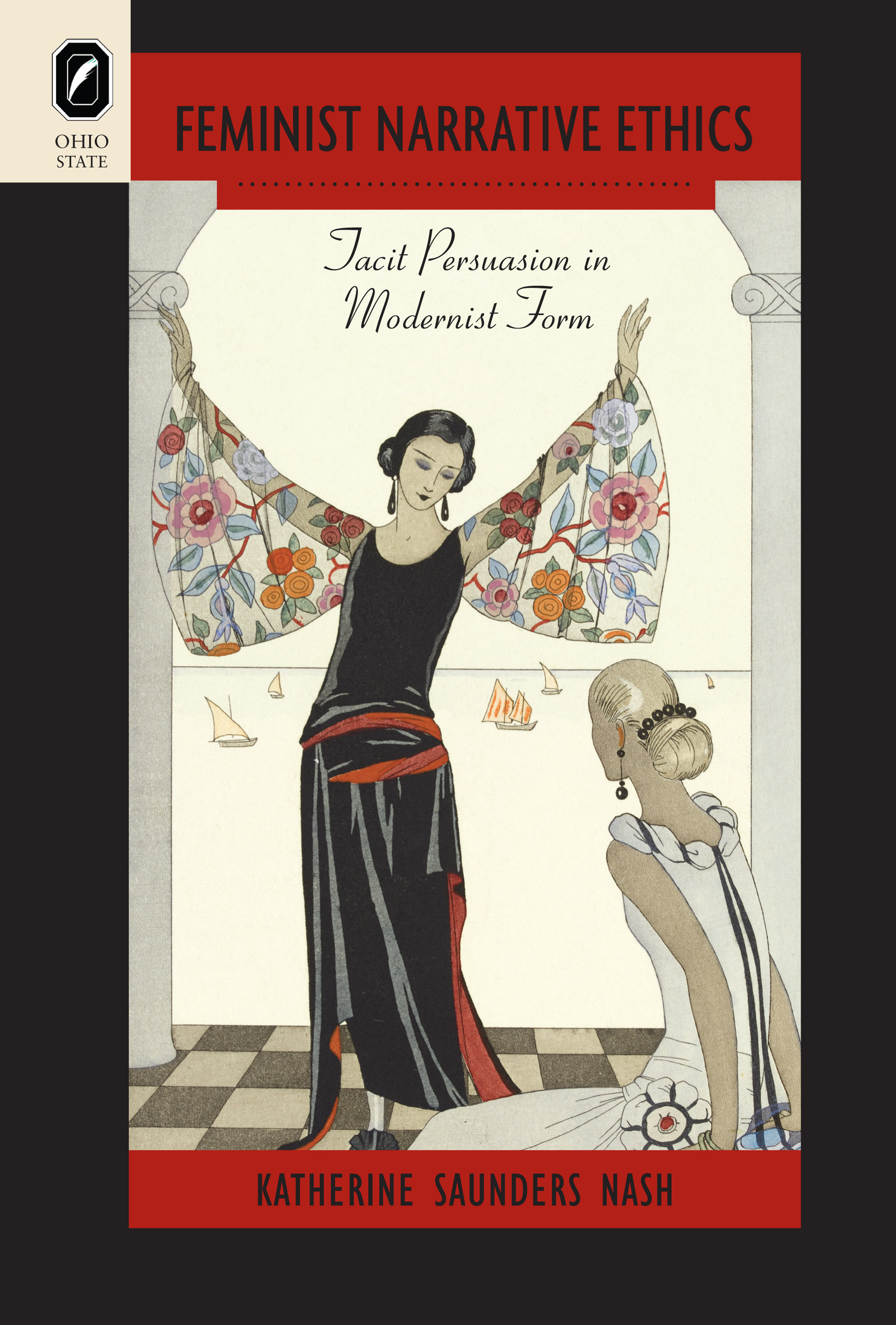Feminist Narrative EthicsTacit Persuasion in Modernist FormKatherine Saunders NashTheory and Interpretation of Narrative |
 12/6 2013 Literary Criticism/ 208 pp. 6x9 
$59.95 cloth 978-0-8142-1242-4 Add cloth to shopping cart $14.95 CD 978-0-8142-9345-4 Add CD to shopping cart $21.95 paper 978-0-8142-5258-1 Add paper to shopping cart Shopping Cart Instructions Review/Change Shopping Cart & Check-out | |||
|
Explore More The Women’s Library, London School of Economics Society for the History of Authorship, Reading, and Publishing |
“Katherine Saunders Nash succeeds admirably in her twin aims of bringing critical assessments of modernist innovations into conversation with rhetorical and feminist narrative theory and of contributing new theoretical vocabulary to rhetorical narrative theory.” —Alan Palmer, author of Social Minds in the Novel and Fictional Minds “Nash offers a rhetoric of reading modernist novels that requires attention to implicit or tacit persuasion by an implied author. . . Serious students of rhetoric and literary analysis will find the theoretical framing here useful in contexts beyond modernist literature, and scholars of modernism will be well served by the readings Nash offers.” — R. M. Bredin, California State University-Fullerton Feminist Narrative Ethics: Tacit Persuasion in Modernist Form establishes a new theory of narrative ethics by analyzing how rhetorical techniques can prompt readers of novels to reconsider their ethical convictions about women’s rights. Katherine Saunders Nash proposes four new theoretical paradigms: the ethics of persuasion (Virginia Woolf), of fair play (Dorothy L. Sayers), of distance (E. M. Forster), and of attention (John Cowper Powys). While offering close readings of novels by each author, this book also provides a new, interdisciplinary basis for coordinating feminist and rhetorical theories, history, and narrative technique. Despite pronouncements by many theorists about the difficulty—even the impossibility—of doing justice in a single study to both history and form, Feminist Narrative Ethics proves that they can be mutually illuminating. Its approach is not only resolutely rhetorical, but resolutely historical as well. It strikes a felicitous balance between history and form that affords new understanding of the implied author concept. Feminist Narrative Ethics makes a persuasive case for the necessity of locating authorial agency in the implied (rather than the actual) author and cogently explains why rhetorical theory insists on the concept of an implied (rather than an inferred) author. And it proposes a new facet of agency that rhetorical theorists have heretofore neglected: the ethics of progressive revisions to a project in manuscript.
| |||


